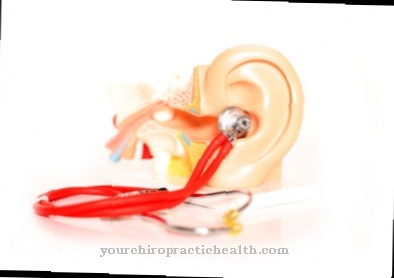The Aromatherapy is based on smells that have a short connection to the human brain. Once in the brain, based on whether we like a smell or not, they decide how we feel. Smells usually have a stronger effect on our wellbeing than sounds or colors. That is why we often use our sense of smell to decide whether we like a person or not. The smells in aromatherapy can also evoke memories that determine our well-being. And all of this faster than tones and colors can.
What is aromatherapy?

Under Aromatherapy means controlled applications based on natural essential oils with the aim of maintaining the physical and mental health of people. A distinction is made between the scientific approach of aromatherapy and the complementary approach.
In scientific aromatherapy it is assumed that the effect is due to the inhaled oils as a result of the smell of humans. Furthermore, the plant-based contents of the oils should get through the mucous membranes of the respiratory tract into the blood and in this way influence the functions of various organs.
In the medical approach of aromatherapy, the origin of the essential oils used is important, while in complementary aromatherapy, the use of the oils is a subjective decision.
Function, effect & goals
A method of application of the Aromatherapy are for example bathrooms. Bath products can be bought ready-made in stores or made by yourself. If you want to make bath additives yourself, mix 15 drops of essence with a little cream (50 ml) for full baths.
Eight to 10 drops of essence are sufficient for partial baths. The whole thing is shaken vigorously and added to the bath water. With bath additives, depending on the essence, a stimulating, calming and analgesic effect can be achieved.However, you should pay attention to the temperature of the water if you have a circulatory disease. Other application methods are: inhalation, fragrance lamps, evaporation of essential oils in the room, massages, compresses and compresses.
Thyme, savory, or clove aromatherapy is able to kill bacteria. Lemon or tea tree oils can destroy viruses. Lavender oil has a psychological balancing effect and promotes sleep. Jasmine oil has a relaxing and harmonizing effect. Angelica root helps anxious and reluctant people. If you suffer from travel sickness, put a drop on your hand and inhale the oil. Bergamot has a strengthening effect on stress and exhaustion.
Furthermore, it has a relaxing, anxiety-relieving and mood-enhancing effect and promotes creativity. Citronella has a refreshing and stimulating effect, and the oil also gives new optimism. The oil of the spruce needle also has a stimulating effect, it donates new energy in general weaknesses and helps against nervousness and stress.
Mandarin oil has a cheering effect and relieves tension and fears. Lemon balm not only has a harmonizing effect, but also improves the mood and strengthens, and is therefore often used in aromatherapy to combat depression, melancholy, stress and sleep disorders.
Risks & side effects
In the Aromatherapy there are some rules to be observed, as it also involves risks. Basically, essential oils should never be applied undiluted to the skin, as this can cause skin irritation and allergies.
Eye contact with the oils is to be avoided. In addition, some essential oils increase photosensitivity, which makes the skin more sensitive and can lead to severe skin reactions, especially after strong sun exposure. Certain oils are not recommended for normal skin either. Avoid using essential oils on open wounds and a tendency to thrombosis. Furthermore, in epilepsy. Poisonous essential oils such as mugwort or thuja should generally not be used.
People who can be treated with homeopathic remedies can use fragrance lamps, but they should refrain from high-dose topical application with essential oils. The following oils in particular should be mentioned here, which can severely impair the effectiveness of homeopathic remedies: peppermint, thyme, chamomile.
Angelica root, aniseed, basil, savory should not be used during pregnancy. The same goes for mint, nutmeg, myrrh, clove, origanum, juniper and others. For pregnant women, it is generally advisable to ask an expert which oils can be used. Breastfeeding women can apply wound healing oils topically. For example rose and jasmine. Women should avoid using massage oils, baths and inhalations with high-dose oils two hours before breastfeeding.
Certain essential oils have a toxic effect and can damage organs if taken internally. For example basil, savory, fennel, camphor, cinnamon and others. Non-toxic oils are tea tree, lavender and rose, which, by the way, also cover the broadest and most important spectrum of applications in aromatherapy.












.jpg)



.jpg)










.jpg)
